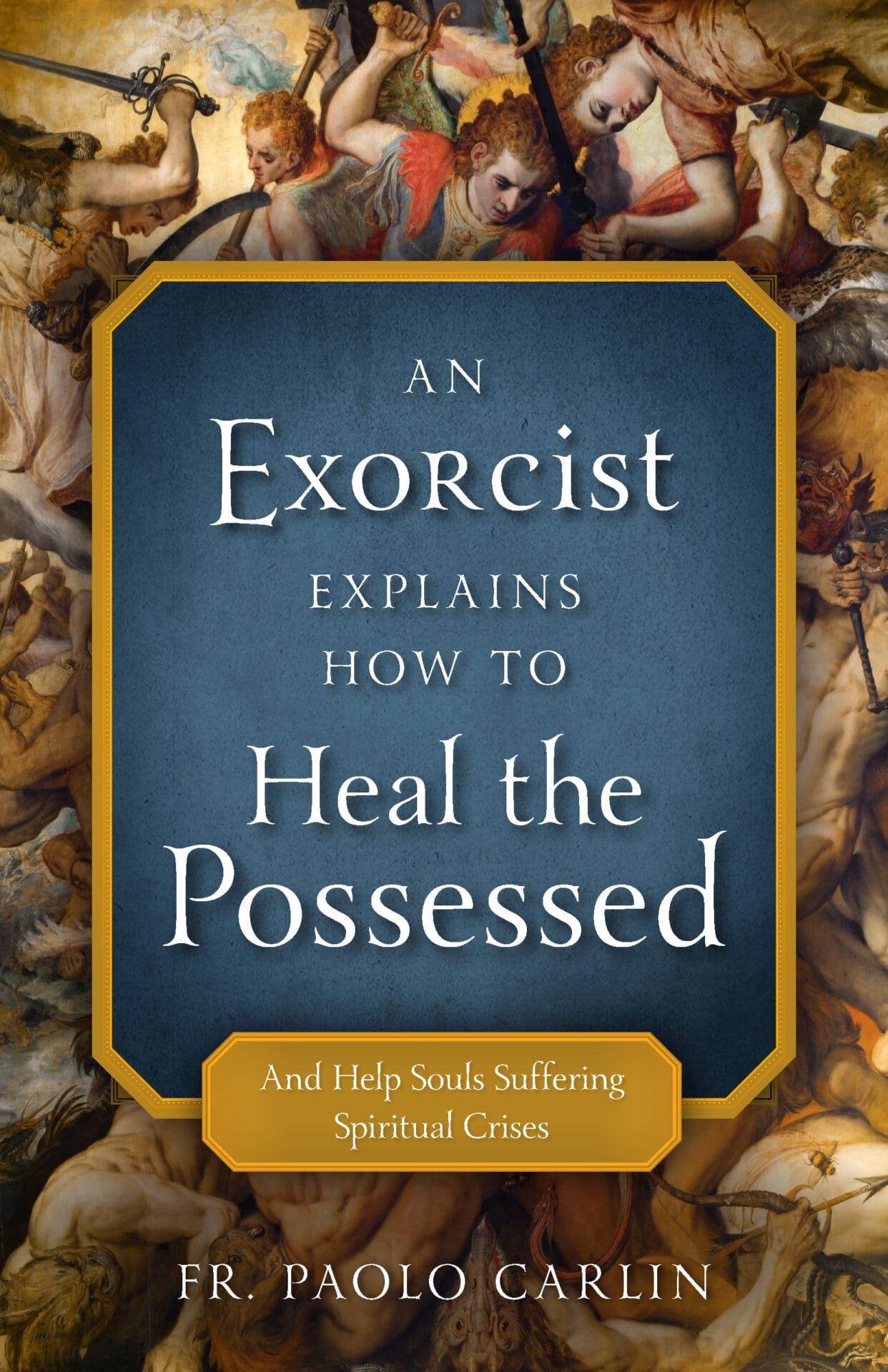Faith and the Sacraments: Spiritual Weapons

The Sacraments
In Latin, the word sacrament is composed of two parts: sacrum and signum (sacred sign). Unlike a sacramental (prayer, blessing) that expresses faith, a sacrament is the sacred sign of the presence and action of God. A sacrament works in the fullness of grace, obtaining for us communion with God in the truth and strength of the Holy Spirit, who is present in us from our Baptism. The sacraments are a relationship with God founded on the encounter with Jesus. They guide the spiritual life.
A relationship with God is based on three activities: listening, through the Gospel; dialogue, through prayer; and the encounter with Jesus, through the sacraments. If we are deprived of even one of these three, our connection with God is undermined and weakened. The sacraments of Reconciliation and the Eucharist maintain our identity and dignity as children of God. It is beneficial to use them often.
The sacrament of Reconciliation well lived (with humble recognition and repentance of sins before Jesus) is more efficacious than an exorcism, which is only a sacramental. In the sacrament of Reconciliation, God receives us as Father. Humbling ourselves before God distances us from the arrogance, pride, and egoism taught to us by Satan.
In the Eucharist, we encounter Jesus the sacrament, the Bread of Life for the soul. Without the Eucharist, the soul is weakened because it does not have the spiritual strength that flows from the sacrament. The Eucharist is the sign of God’s mercy toward man because it is the fruit of the Passion and death of Jesus, the sacrifice of salvation. To receive the Eucharist is to receive Jesus in one’s life. In the Eucharist, He invites us to offer to God, out of love for Him and for our neighbor, the breaking of the bread and the pouring of the wine.
In many cases, one notices a total liberation from the snares of the enemy solely by putting one’s spiritual life in order; that is, through living the Faith in the grace of God and with the regular reception of the sacraments.
Conversion of Heart
Exorcism and sacramentals in general (prayers, blessings with water, oil, blessed salt, blessed objects, and relics) have their value, but if we think that only these may obtain liberation, we fall into grave error. Those who suffer from extraordinary diabolical phenomena must be aware that liberation depends principally on conversion of the heart and living a life of total faith in Jesus Christ.
If prayers of liberation and exorcism procure only slight spiritual improvements in a person, it is necessary to ask oneself if there is a real conversion of heart or a religious pedantry.
Through divine permission, some of the faithful (including laymen and consecrated religious) are called by God to cooperate in the salvation of humanity through sufferings that are derived from vexations, obsessions, or, at times, even demonic possessions. Satan does not fear exorcisms as much as he fears the humble and pure disposition with which these faithful receive the rite of exorcism. Therefore, each one who is struck must cultivate a heartfelt trust in the mercy of God and must exercise mercy toward his neighbor, pardoning unconditionally and loving his enemies.
He must also take care to guard his tongue, to avoid grumbling, gossiping, and making contemptuous assertions about his neighbors, above all about the ones who have offended him. He must be aware, as St. Faustina Kowalska is in her diary, that, “The tongue is a small organ, but it does big things. . . . There is life but there is also death in the tongue. Sometimes we kill with the tongue; we commit real murders.”
The person being exorcised must avoid gossip and exercise self-control in the presence of persons who criticize, to avoid being dragged into vicious circles of judgments. When he is experiencing the greatest torments from the assaults of the Evil One, he must ask God for peace of heart and offer Him his own suffering with complete trust. The person being exorcised will know with certainty that God will give him all that is necessary to resist temptation.
Prayer
On the path to liberation, prayer is equally important, although secondary to the will that must always conform to the will of God. Unfortunately, some persons seen by exorcists do not pray; they limit themselves to some salutary daily invocations, even though their condition requires a life of intense prayer and a deep love for the will of God. They do not pray out of a lack of time or because they have not understood the purifying and transforming effects of prayer; rather, in certain cases they are impeded by the demon. Regarding the necessity of prayer, St. Faustina Kowalska affirms:
A soul arms itself by prayer for all kinds of combat. In whatever state the soul might be, it ought to pray. A soul which is pure and beautiful must pray, or else it will lose its beauty; a soul which is striving after such purity must pray, or else it will never attain it; a soul which is newly converted must pray, or else it will fall again; a soul plunged in sins must pray, so that it might rise again. There is no soul which is not bound to pray, for every grace comes to the soul through prayer. . . . Let the soul be aware that in order to pray and persevere in prayer, it must arm itself with patience and cope bravely with exterior and interior difficulties. Interior difficulties are discouragement, spiritual dryness, heaviness of spirit, and temptations; exterior difficulties are human respect and time set apart for prayer. This has been my personal experience because, when I did not pray at the time assigned for prayer, later on I could not do it because of my duties; or if I did manage to do so, it was only with great difficulty, because my thoughts kept wandering off to my duties.
Confession & Mass
Let us also remember that, in the spiritual life of a Christian, and especially in those who experience extraordinary attacks by the Devil, one cannot neglect the frequent use of the sacraments. Divine mercy is present thanks to the sacraments. We exorcists can verify that the sacrament of Confession is particularly feared and hated by the demon, because it snatches from him so many souls.
When man humbly and sincerely recognizes his sins, repents, and confesses them, he does what the demon in his inordinate pride will never do: he humiliates himself before God; he recognizes that God is the Creator and Lord and that he is a creature of God, ever in need of His mercy. This behavior permits us to be received into the merciful arms of Christ, who immerses us in His blood and purifies us from all the stains of sin.
Thus, having been renewed, each Christian (and even more so, the person being exorcised), nourished and reinforced by receiving Jesus in the Eucharist, engages with new vigor in his battle against the Evil One.
Participation at Holy Mass becomes a great work of mercy for us if it is lived as an offering for neighbors, living or dead. St. Veronica Giuliani provides us with an example of this love offering. She makes us understand how seeking intimate union with Jesus’ love for us enables us to conquer the temptations of the Evil One.
St. Veronica is relevant because she listened to Love speaking to her heart — to Jesus — and it bore fruit, thrilling and animating her soul. The entire life of St. Veronica was lived as a witness to the truth of God’s Word. In her diary she writes principally of the beauty of being loved by Jesus:
It seemed to me that our Lord was at the door of my heart, telling me repeatedly, “Open for me, open for me.” These calls made me exult with joy and I, addressing my Lord, told him that for him my door was never closed, asking him to come in because I could no longer wait! He made me understand that he wished to enter but on condition that he be alone and that that domain belong solely to Him. Listening to these invitations and seeing how the Lord’s love takes possession of a soul, I felt my heart palpitating with such vehemence and joy that it seemed to yearn to burst open so that the Lord could make his entry forever.
St. Veronica’s last words summarize an existence entirely centered on the desire and search for union with God, her spouse: “Tell everyone! This is the secret of my joy and my sufferings: Love has made itself known to me.”
The awareness of being loved by Jesus determines the quality of life of the believer as a child of God and enables him to distance himself from the Evil One and expel him from his life.
In addressing the necessary spiritual formation of the exorcist and the person being exorcised, it is necessary to emphasize that the exorcist must not occupy himself principally with administering exorcisms, but rather in curing his own spiritual life and that of the afflicted person. He must also teach the person to become the exorcist of himself. This does not mean that the exorcistate must assist the exorcist; rather, he himself must oppose the demon with all the means mentioned above. When the person being exorcised has the correct spiritual disposition, the exorcisms will produce a progressive sanctification as well as a gradual liberation.
+
This article is adapted from a chapter in An Exorcist Explains How to Heal the Possessed by Fr. Paolo Carlin which is available from Sophia Institute Press.
Art for this post on healing the possessed through faith and the sacraments: Cover used with permission; Image of woman praying: Photography used with permission of unsplash by Alex Radelich.
To read more about exorcisms, click HERE.




